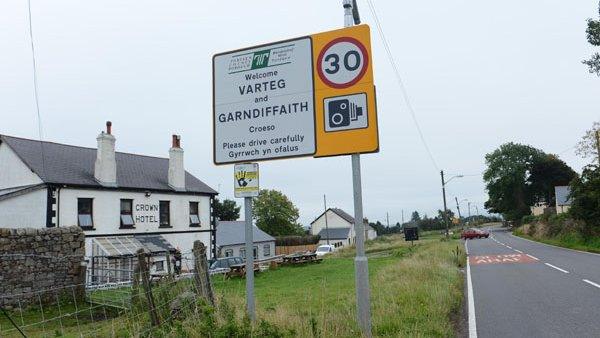Welsh Language Commissioner unveils place name list
- Published
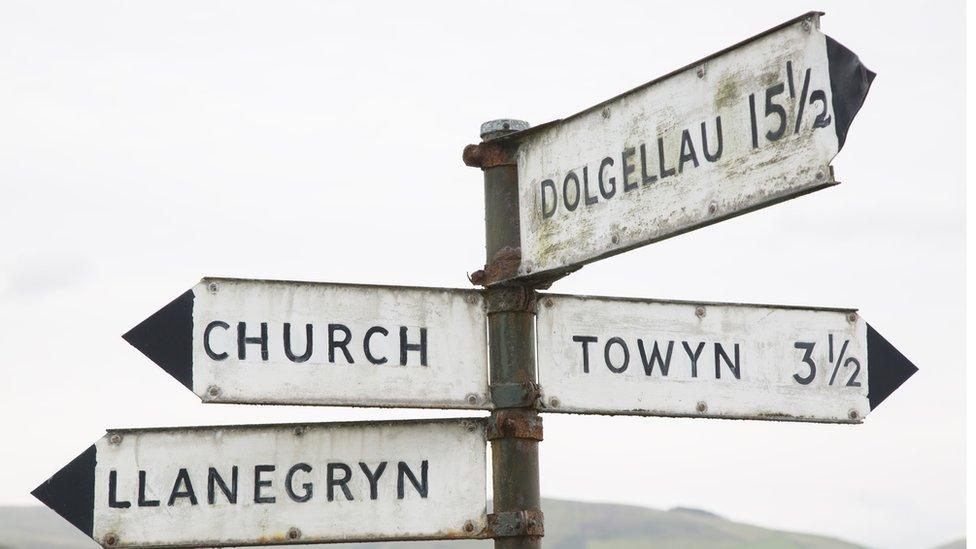
Many places in Wales have two names - one in Welsh and English
Is there one "n" or two in Llangran(n)og? And should there be a hyphen in Aber(-)porth?
These are some of the spelling conundrums the Welsh Language Commissioner hopes to solve following the launch of a standardised list.
The directory features 3,000 entries and took years to compile.
It is hoped it will preserve place names as well as settle debates over contested spellings.
Many places in Wales have two names - one in Welsh and English.
Over the years, a number of Anglicised versions have bitten the dust - such as Llanelly reverting back to Llanelli.
However, debate still rages on the spellings of places names - such as the furore over the Torfaen village of Varteg.
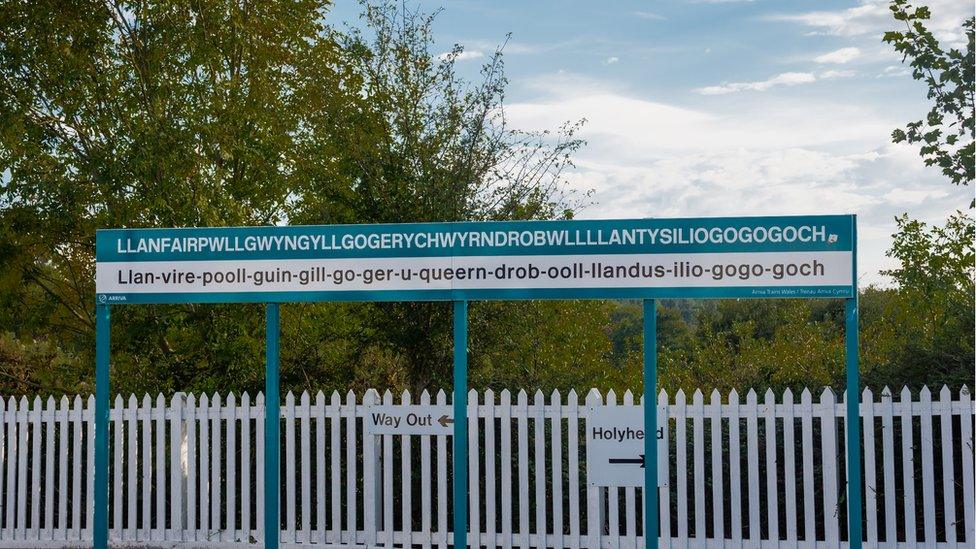
One place, the spelling of which perhaps unsurprisingly is not recommended for any changes, is Llanfairpwllgwyngyllgogerychwyrndrobwllllantysiliogogogoch in Anglesey
Professor David Thorne, chairman of the panel of experts which drew up the list, said place names were an important part of a country's heritage.
He said: "They deserve to be cherished, protected and safeguarded.
"Our hope is that this list, which includes over 3,000 sites, is a step towards preserving the wealth of place names that we have in Wales."

Recommendations on the list include (brackets indicate change to Welsh or English spellings):
Abermaw / Y Bermo to Abermo (Welsh).
Aberporth to Aber-porth (Welsh and English).
Dyfnant to Dynfant (Welsh).
Penllergaer to Penlle'r-gaer (Welsh and English).
Pontlliw to Pont-Lliw (Welsh and English).
Llandaff to Llandaf (English).
Merthyr Tydfil to Merthyr Tudful (Welsh)
Source: Welsh Language Commissioner

Also on the panel was Dr Dylan Foster Evans, of Cardiff University.
He told BBC Radio Wales he hoped the suggested changes would be adopted over time.
"Our business is to give a clear lead - we are not in the business of enforcing it on anyone," he said.
"It's matter for local authorities or the highway authorities about what they do with road signs. But the practice is, when they need replacing that's when they will [use a sign with a different spelling].
"Although we might like a standardised spelling in both languages we might not always get there…..[but the idea] is that we give recommendations that people can use."
The list, which can be accessed via the Welsh Language Commissioner's website, external, was due to be officially launched at the Pierhead in Cardiff on Wednesday evening.
- Published14 June 2018
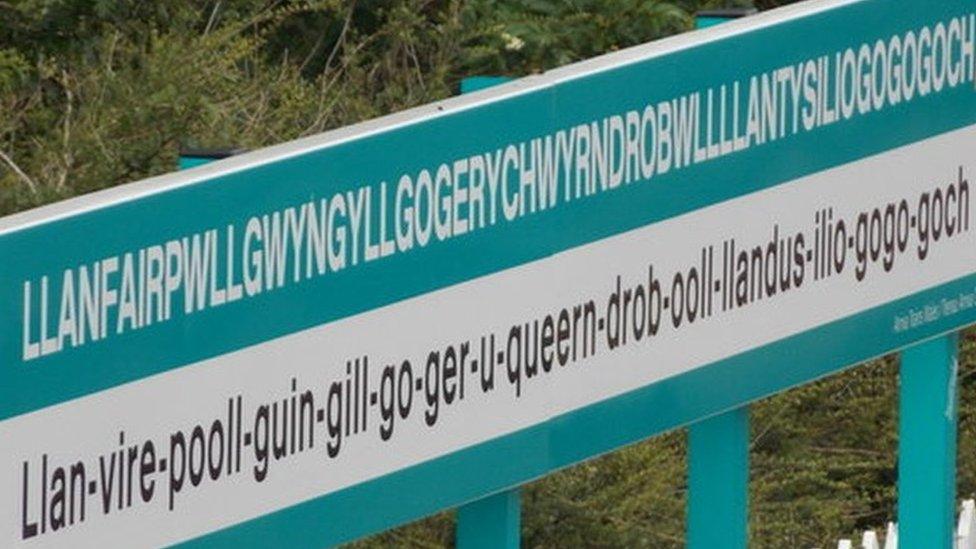
- Published8 April 2018
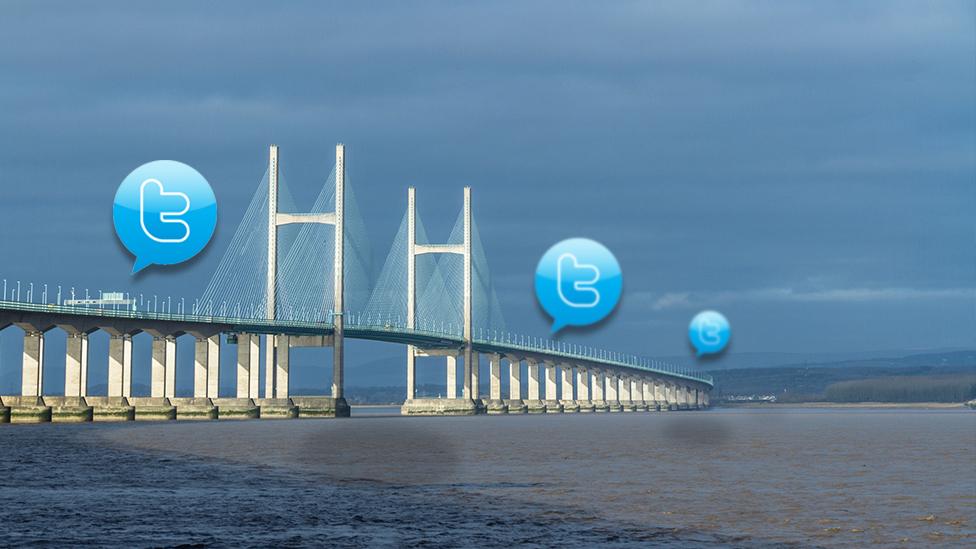
- Published1 November 2015
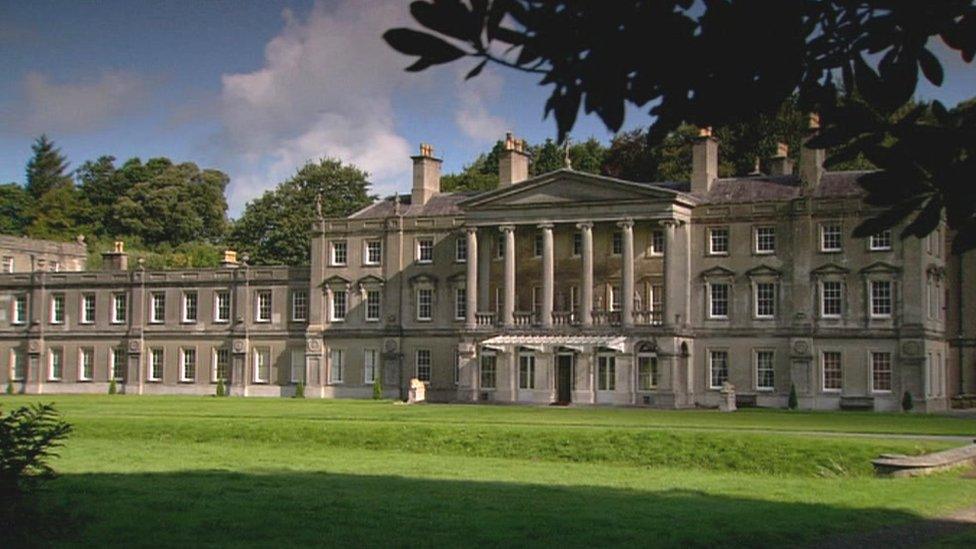
- Published22 November 2013
